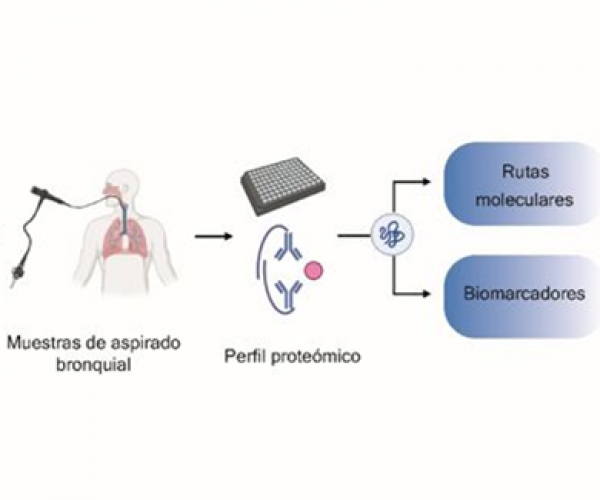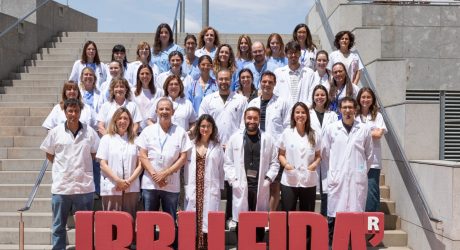SARS-CoV-2 is shown to induce alterations in the proteomic profile of bronchial aspirate from critically ill patients
A new study within the CIBERESUCICOVID project highlights the usefulness of bronchial aspirate samples, obtained during the ICU stay, as a source of molecular information in COVID-19 patients assisted by invasive mechanical ventilation. More specifically, the study – coordinated by David de Gonzalo-Calvo, CIBERES researcher in the Translational Research in Respiratory Medicine group at the Institute for Research in Biomedicine of Lleida (IRBLleida) – has shown that SARS-CoV-2 induces alterations in the proteomic profile of bronchial aspirate from critically ill patients. In addition, “the study identifies specific proteomic profiles associated with adverse events and subsequent respiratory sequelae after hospital discharge,” says Marta Molinero, researcher at IRBLleida and first author of the study.
The results obtained provide new information on the pathological mechanisms associated with the disease. Indeed, it expands current knowledge on the nature of the biological response to SARS-CoV-2 infection in the lower respiratory tract, as well as on the mechanisms linked to the critical courses of the disease.
In clinical practice, the proteins identified in this study constitute new therapeutic candidates and biomarkers for the prediction of respiratory outcome and sequelae. The development of prognostic assays that reflect the risk of adverse events in the ICU is crucial for medical decision-making.
About the CIBERESUCICOVID project
The CIBERESUCICOVID study, led by researcher Antoni Torres, head of the CIBER Respiratory Diseases Group (CIBERES) at the Hospital Clinic of Barcelona, determines the risk and prognostic factors of COVID-19 infected patients admitted to Spanish Intensive Care Units (ICU) from the beginning of the pandemic in Spain until the end of the pandemic. The study is possible thanks to the support of the COVID-19 Fund granted by the Instituto de Salud Carlos III (ISCIII).
This study has also been partly funded by the UNESPA’s “estar preparados” (be prepared) grant programme.
Information: Ciberes



